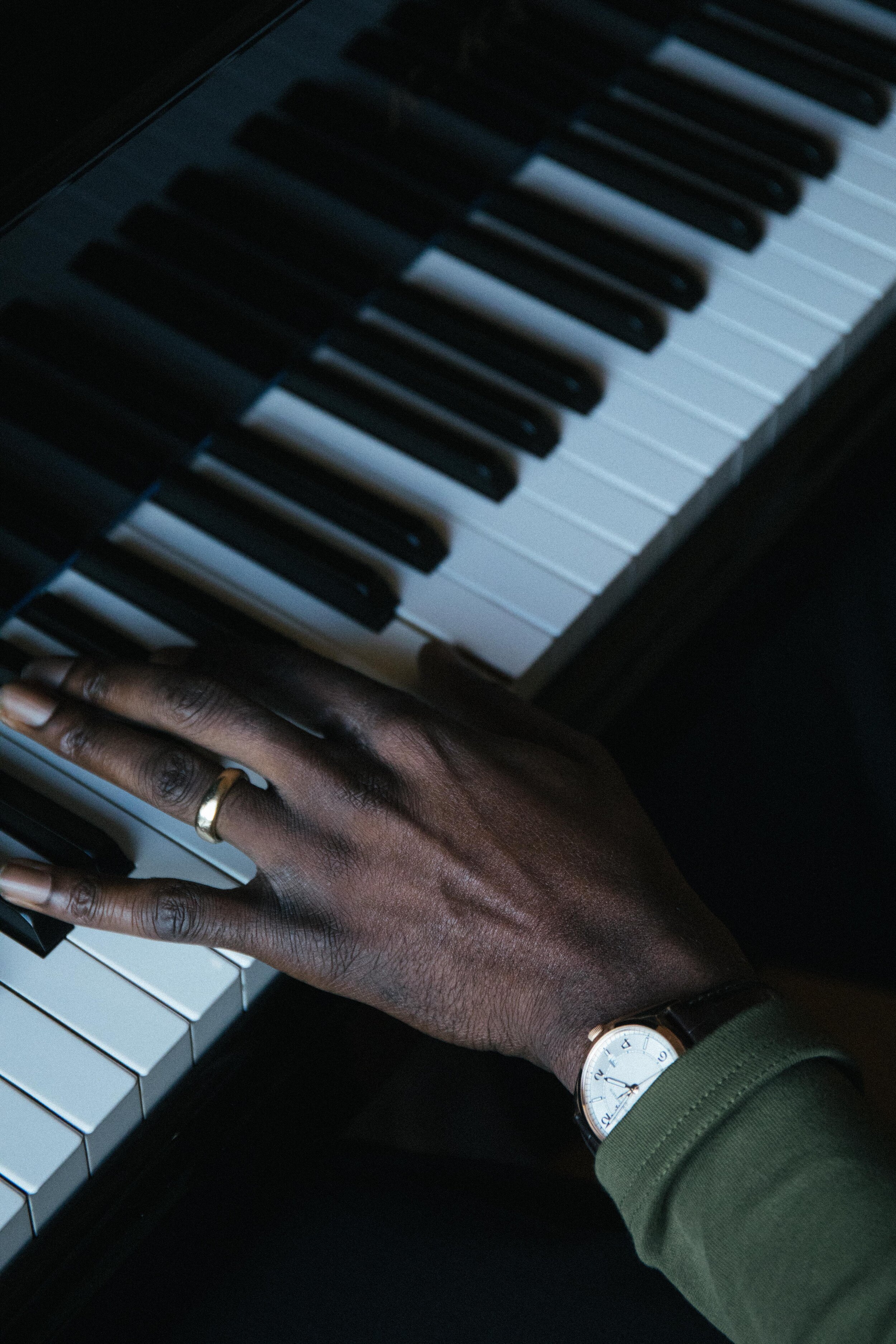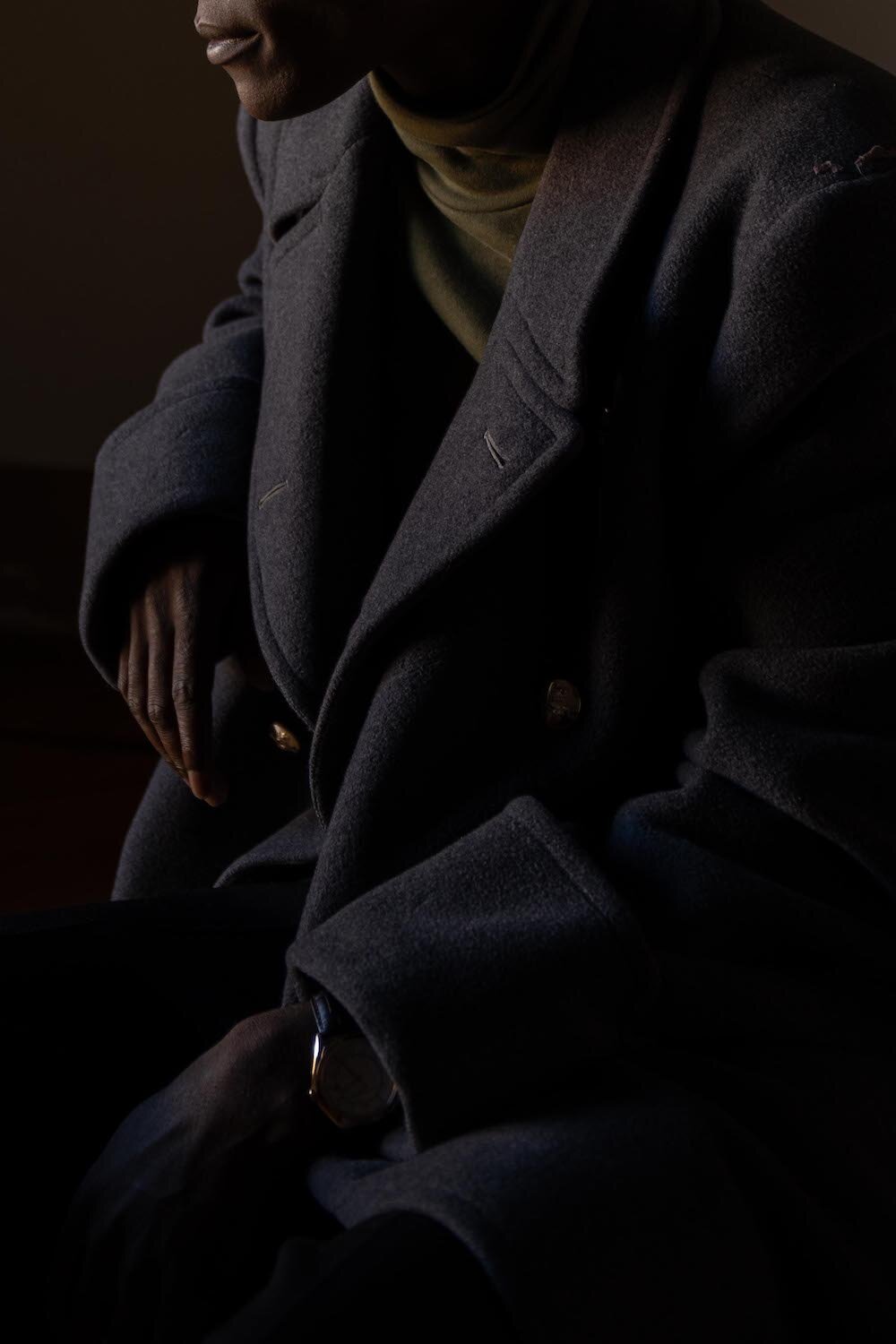A disarming voice

-
Chronicle and story about Benjamin Clementine’s performance at Villa Lena, Italy.
-
Openhouse magazine
Issue 15 -
Photos by Martino di Napoli Rampolla and Guglielmo Profeti
-
BENJAMIN
CLEMENTINE
Between renunciations, farewells and breakups, our existence takes place between moments of mourning for what we leave behind and the excitement of what is to come. Days go by as we choose some things and reject others, and yet, often, a decision can be perceived as a betrayal or a sign of weakness. Other times, however, it can be considered to be an act of optimism; the affirmation that things can not only be different but better. A gesture that brings us closer to knowing ourselves, to drawing the outline of the journey we wish to embark on in this time lapse we call life. In the case of Benjamin Clementine, renunciation appeared very early on; a direct consequence of learning that, in order to be happy, he had to forego all that was not music. This decision led him along an arduous, solitary path on which he was determined to give up everything but himself.
In early autumn, we visited Villa Lena, the art residency in Tuscany where Benjamin had been invited to perform during a period when restrictions in Europe had eased somewhat. It was a cold and sunny Saturday afternoon. As we made our way along the bumpy road leading to the house, a combination of enthusiasm and excitement was in the air.
“I learned to see the positive side of everything. Not having to pay rent allowed me to develop artistically”
Martino di Napoli Rampolla tries to capture in images something that can only really be enjoyed in person. Benjamin appears on stage with a half-smile. He looks happy to play for the public after a six-month hiatus. His presence is magnetic and curious. He walks softly, and the audience seems to hold its breath for a few seconds. He sits, looks at us, places one foot on the stool and removes his sneakers, as if playing such an impressive instrument were a matter of connection where there is no place for barriers of any kind. He pauses and places his fingertips on the piano keys.
The youngest of five siblings, Benjamin grew up with the love and support of his grandmother but was misunderstood by his siblings, his mother and, particularly, his father. His childhood was marked by loneliness until, at the age of 11 years, he discovered the piano. “As soon as I was able to understand what a piano was, it became my best friend,” he acknowledges. “I didn’t want to be where all the other kids were. I really enjoyed being alone and this allowed me to be very patient when I practiced.
It is kind of like when you train a new skill or you learn a new chord. You have to treat your brain like a small child, give it time and guide your body gently towards that new element.” It was precisely the need to dedicate more time to his music that led him to break away from his family at 16. First on the streets of Camden, in England, and then in Paris, the idea of giving up a roof over his head and becoming homeless did not intimidate him. He almost feels privileged because of it: “I learned to see the positive side of everything. Not having to pay rent allowed me to develop artistically. I was able to practice without having to think about working from 9 to 5. It was a sort of privilege and, although I was suffering socially, my homelessness was a way to get where I am today.”
The subway, where he obtained a large following, became his main stage. His first break came from a passenger who offered him the chance to play in his bar. Benjamin was already a cult figure in the city when EMI came knocking. He released two EPs, Cornerstone and Glorious You, which made him a celebrity. His debut album At Least For Now came in 2015 and, with it, one of the music industry’s most coveted honours, the Mercury Prize. Working with a record label took him to the highest of heights, but it also came with a new renunciation; that of his creative independence. “Signing with a label is a very tough choice. Music generates money, unfortunately, so you have to be bold and look for a good lawyer.”
At the peak of his career, just when he thought he had overcome his fears, the birth of his son Julian took him back to the beginning, to his own childhood. “It made me think of my mum. She experienced depression when I was born and couldn’t take care of me.” This lack of attachment to his parents distorted Benjamin’s idea of fatherhood: “It’s almost as though I was annoyed that Julian needed us. I always thought that anyone could live alone and survive if only they believed in themselves.” Writing down these thoughts brought them out, making him aware of them. The help of his wife, the singer and songwriter Florence Morrissey, was essential. “She had to protect my son, and me also. As she is a great person, she managed to do both.”
“As soon as I was able to understand what a piano was, it became my best friend”
For Benjamin, the binary vision that divides the world in terms of good and bad, ugly and beautiful is only a matter of semantics; something he wants to transmit to Julian: “I know he is an unlucky child for having a father who might say ‘Julian, you’re ugly’ but I believe that it’s good to teach your child to accept criticism and keep going. We should appreciate things as they are.” Words can be twisted and fill up with new meanings. That is, without a doubt, one of his strong points. “I wrote all the lyrics to my first album before even touching the piano. Now I’m interested in a different approach. I think I write too much. So, for the next album I’m going to let the music take the lead.”
There is sadness and pain in Benjamin’s words, but also in his tone. When you listen to him, be it singing or speaking, his voice reveals endless emotions that can disarm, yet you would never imagine that the world could so deeply affect this self-made man, both as a songwriter and as a human being. Benjamin’s art is not only perceived but is also thought-provoking. As the first notes emerge from the piano, I think of him as an island, wild and small, floating proudly, free and alone near a densely populated archipelago. From the shore, in the warm circular room at Villa Lena, we hear the whisper of him like a breeze rustling through the leaves, roaring between the waves, and, as his voice rises it bellows and crashes onto the rocks.


